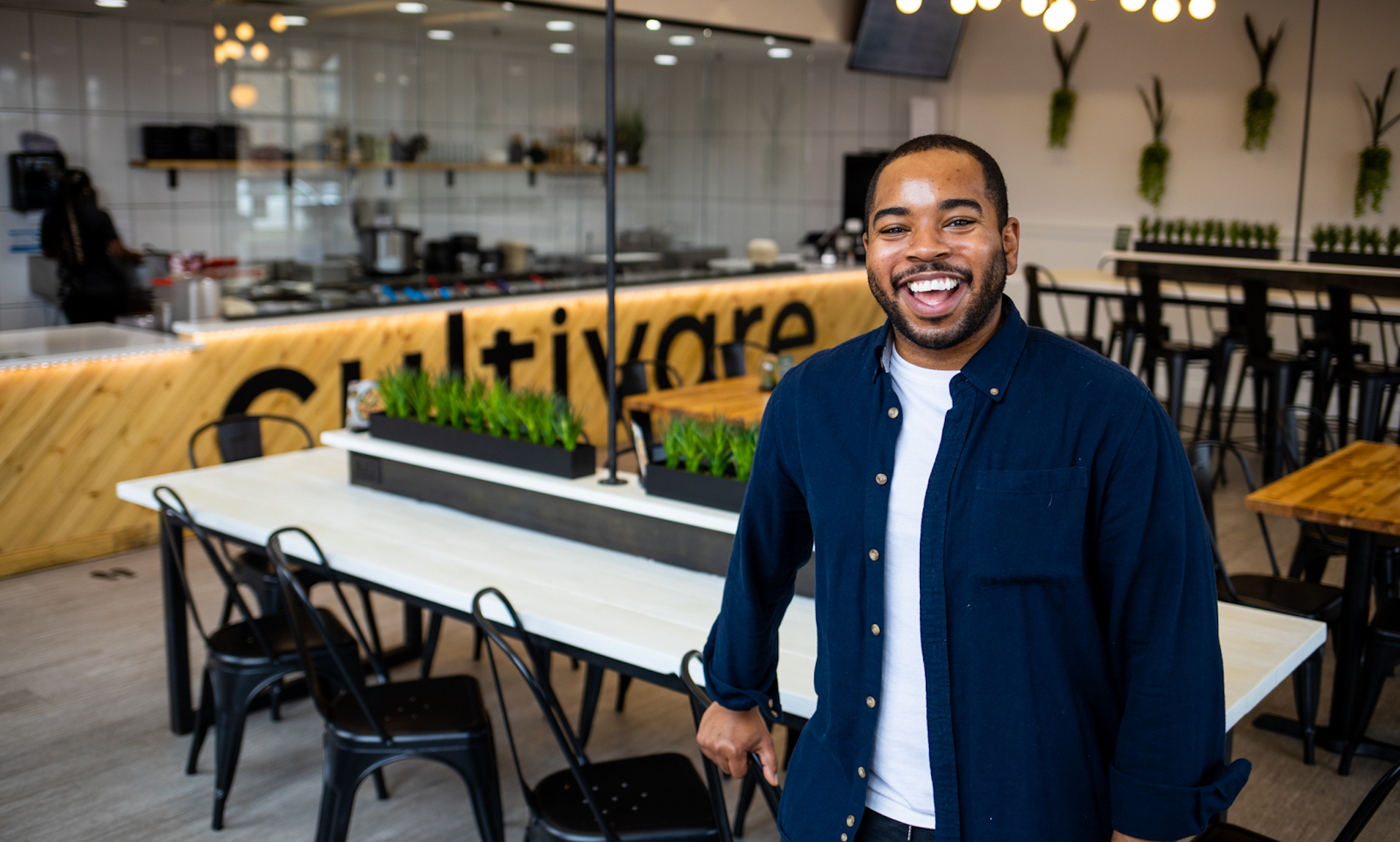While all businesses have been deeply affected by the COVID-19 pandemic, restaurants, bars and their suppliers face the challenge of simultaneously staying afloat financially, keeping people safe and trying to provide their customers the quality and experience that makes dining out or carrying out both respite and an everyday celebration.
We spoke to three of the many UMKC alumni working to keep their businesses afloat about the innovations that have kept them in the game.
Kasim Hardaway (B.S. ’15, Arts and Sciences)
Kansas City food influencer and recipe developer
Head of research and development, Cultivare restaurant
What was life like for you during the COVID-19 shutdown?
The shutdown was indescribable for my professional life. Prior to the onset of COVID-19, I was seeing a sharp upward trajectory across all of my businesses. I was crushing goals, expanding my client base and even starting new ventures. Immediately upon the shutdown, however, all of that came to an abrupt (and scary) end. I lost over 80% of my contracts and work dried up in a snap.
How have you pivoted during the pandemic to continue to serve customers?
Pivoting during the shutdown was really grounded in being gritty and getting back to basics. I tapped into my network, doubling down on that hustle mentality and extending myself across all my service areas. I put all of my skills to use — collaborating with brands on recipe development, pivoting my food photography to resound with people being at home and offering marketing consulting based on client revenue growth.
I’ve always considered myself a jack of all trades. Being able to tap into one service area that was seeing growth and halting on another that wasn’t gaining traction allowed me to remain flexible but in demand in my sphere of business.
How do you see your restaurant/bar being different in the future because of the pandemic?
With restaurant owners already juggling so much, it is quite a daunting task. While I would love to be optimistic about the reality of the situation, my heart goes out to each and every small, locally-owned concept for the months that lie ahead of us.

Steve Revare (M.A. ’15, Arts and Sciences)
Co-founder, Tom’s Town Distilling Co. in Kansas City, Missouri
What was life like for you during the COVID-19 shutdown?
The early days of the pandemic were chaotic. I’m sure I wasn’t the only one who spent entire nights staring at the ceiling. At that point no one knew much about how people transmitted the virus, so we just did what we thought we should do and shut down. It was the day before the city required businesses to close.
How have you pivoted during the pandemic to continue to serve customers?
Like distilleries across the country, we were able to make hand sanitizer. We donated over a thousand gallons to first responders, prisons and charities across the country and sold enough to keep the lights on until we were able to open back up in June. We were also able to offer four to-go cocktails that highlight our spirits.
When we did open back up, we opened outside. We put up tents, rugs, lounge furniture, and actually put together an amazing atmosphere in our parking lot. We were able to fire up some pre-pandemic partnerships with live entertainment. Thankfully, the feedback has been amazing from day one.

How do you see your restaurant/bar being different in the future because of the pandemic?
We're planning more partnerships with local restaurants. They are serving our spirits in cocktails to go and in cocktail kits, like the Jack Stack Bloody Mary kit. That's some of the good that I hope comes out of this pandemic: Local companies supporting other local companies.
One thing the pandemic has taught me: Even as the world appears to melt down around people, they still like to drink! Our sales at liquor stores have actually increased over last year.

Maria Finn (B.A. ’91, Arts and Sciences)
Writer and chef in the San Francisco Bay area
What was life like for you during the COVID-19 shutdown?
When the shutdown hit, I was chef-in-resident at Stochastic Labs, a residency and incubator for artists, scientists and tech engineers in Berkeley, California, along with writing freelance and crewing on a sailboat. I really enjoyed these jobs, which all ended at the shutdown.
How have you pivoted during the pandemic to continue to serve customers?
I began a meal delivery service for our local community that had a “No Neighbor Left Behind” program with a friend who is a chef. People could donate to buy meals for those who needed it. We had a lot of seniors who couldn’t leave their homes, a single mother getting cancer treatments and others who we were able to provide meals for. We were also able to support local farmers and fishermen during this time, which made me aware of how vital it is to have a resilient local food system.
How do you see your restaurant/bar being different in the future because of the pandemic?
I think we are going to see a lot of creativity when this pandemic lifts. Restaurant people are by nature creative — In 2008, when the economy crashed, what emerged were pop-up food events and food trucks. The overhead is so high in the current restaurant model, and eating out can be prohibitively expensive. The landlords seem to be the only ones doing well with the current model. Emerging restaurants will have lower overhead and more interaction and engagement by the customers.
I also do private dinners in people’s homes, and clients have been setting up small tables outside. We have one person serving so only they touch the utensils, and we all wear masks and gloves. Many people haven’t hired a private chef before and say they really prefer it to going to a restaurant.

